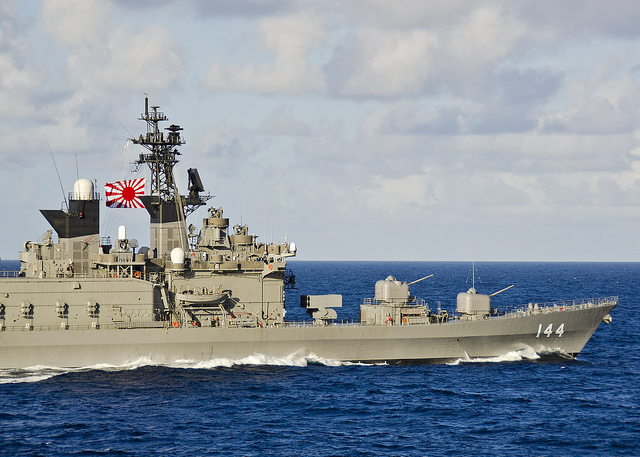ASPI suggests
 Michael O’Hanlon from Brookings has some ideas on how the US might spend its defence dollars given current fiscal constraints in his book Healing the Wounded Giant, including cutting ground forces, buying half of the planned 2,500 F-35s, and suggesting the Navy can get by with as low as 260 ships, rather than the planned 286. O’Hanlon and David Petraeus have an op-ed along the same lines as well.
Michael O’Hanlon from Brookings has some ideas on how the US might spend its defence dollars given current fiscal constraints in his book Healing the Wounded Giant, including cutting ground forces, buying half of the planned 2,500 F-35s, and suggesting the Navy can get by with as low as 260 ships, rather than the planned 286. O’Hanlon and David Petraeus have an op-ed along the same lines as well.
On a related topic, here is an article on how to keep the US–China relationship from running off the rails.
In Japan, Prime Minister Abe is having some success the second time around:
Mr Abe’s dramatic rata-tat-tat of policy shifts has excited and enthused [the Japanese people]. His approval ratings, like the stockmarket, are booming.
His plans also appear to involve the first ever amendments to the 1947 constitution, including acknowledging Japan’s right to standing army, navy, and air force.
On the other side of the Indo-Pacific, the Lowy Institute has released its 2013 India poll. It tells us, among other things, that apparently 83% of Indians consider China a threat, and we in Australia are India’s fourth favourite country, behind the US, Singapore, and Japan.
And earlier this month the International Crisis Group has released a report on stability in Timor-Leste:
Timor-Leste deserves praise for the success with which it has implemented pragmatic policies designed to bring rapid stability following the 2006 crisis. Promoting confidence at home and abroad is important for transforming any post-conflict economy. But it likely has a very limited window of opportunity during which to make investments – both political and financial – that might mitigate the still real risks of an eventual return to conflict.
We have also had a couple of short responses from our readers:
Neil James notes in response to this piece on basing at the Cocos (Keeling) Islands, that as well as there being limited space, limitations in the supply of fresh water and the lack of a deep-water harbour to accommodate larger ships will also preclude the establishment of large or permanent bases.
And in response to Peter Jennings thoughts on pay parking for the ADF (and others in the Parliamentary Triangle), a bemused member of the ADF notes that: we should “Spare a thought for some in JOC that drive 140km round trips to Bungendore each day… Did you know DFAT are offering a fuel allowance to their people to actually get someone to volunteer to work out there?”
And last but not least, we also suggest you check out our jobs page. There are three positions going at the moment; a cyber security analyst, events and publications assistant, and an administration officer.
Image courtesy of Flickr user U.S. Pacific Fleet.